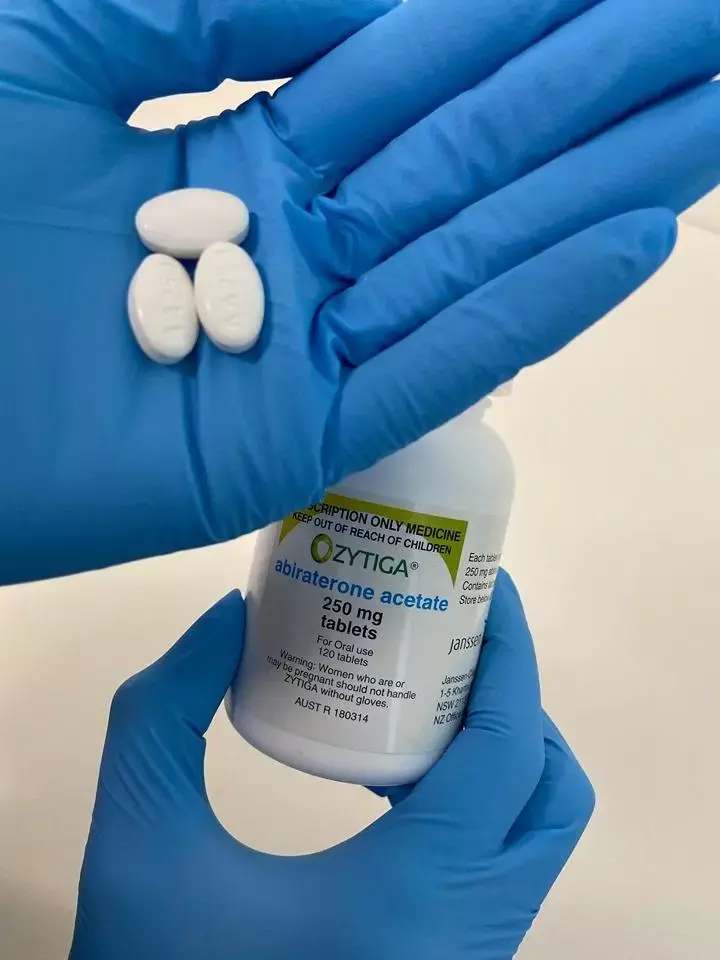- Home
- Medical news & Guidelines
- Anesthesiology
- Cardiology and CTVS
- Critical Care
- Dentistry
- Dermatology
- Diabetes and Endocrinology
- ENT
- Gastroenterology
- Medicine
- Nephrology
- Neurology
- Obstretics-Gynaecology
- Oncology
- Ophthalmology
- Orthopaedics
- Pediatrics-Neonatology
- Psychiatry
- Pulmonology
- Radiology
- Surgery
- Urology
- Laboratory Medicine
- Diet
- Nursing
- Paramedical
- Physiotherapy
- Health news
- Fact Check
- Bone Health Fact Check
- Brain Health Fact Check
- Cancer Related Fact Check
- Child Care Fact Check
- Dental and oral health fact check
- Diabetes and metabolic health fact check
- Diet and Nutrition Fact Check
- Eye and ENT Care Fact Check
- Fitness fact check
- Gut health fact check
- Heart health fact check
- Kidney health fact check
- Medical education fact check
- Men's health fact check
- Respiratory fact check
- Skin and hair care fact check
- Vaccine and Immunization fact check
- Women's health fact check
- AYUSH
- State News
- Andaman and Nicobar Islands
- Andhra Pradesh
- Arunachal Pradesh
- Assam
- Bihar
- Chandigarh
- Chattisgarh
- Dadra and Nagar Haveli
- Daman and Diu
- Delhi
- Goa
- Gujarat
- Haryana
- Himachal Pradesh
- Jammu & Kashmir
- Jharkhand
- Karnataka
- Kerala
- Ladakh
- Lakshadweep
- Madhya Pradesh
- Maharashtra
- Manipur
- Meghalaya
- Mizoram
- Nagaland
- Odisha
- Puducherry
- Punjab
- Rajasthan
- Sikkim
- Tamil Nadu
- Telangana
- Tripura
- Uttar Pradesh
- Uttrakhand
- West Bengal
- Medical Education
- Industry
New formulation dramatically improves quality of life in prostate cancer
 IMAGE: A NOVEL FORMULATION OF THE PROSTATE CANCER DRUG ABIRATERONE ACETATE - CURRENTLY MARKETED AS ZYTIGA - WILL DRAMATICALLY IMPROVE THE QUALITY OF LIFE FOR PEOPLE SUFFERING FROM PROSTATE CANCER. view more CREDIT: HAYLEY SCHULTZ/UNISA
IMAGE: A NOVEL FORMULATION OF THE PROSTATE CANCER DRUG ABIRATERONE ACETATE - CURRENTLY MARKETED AS ZYTIGA - WILL DRAMATICALLY IMPROVE THE QUALITY OF LIFE FOR PEOPLE SUFFERING FROM PROSTATE CANCER. view more CREDIT: HAYLEY SCHULTZ/UNISAResearchers at University of South Australia have found that a novel formulation of prostate cancer drug abiraterone acetate - currently marketed as Zytiga - will dramatically improve the quality of life for people suffering from prostate cancer.The new formulation improves the drug's effectiveness by 40 per cent, they found. The new research has been published in the International Journal of Pharmaceutics.
Abiraterone acetate (AbA) has an oral bioavailability of <10% due to its poor water solubility. The new formulation has more bioavailability.
Prostate cancer is the most commonly diagnosed cancer in men, with one in six at risk of diagnosis before the age of 85. In 2019, more than 19,500 cases of prostate cancer were diagnosed in Australia. Globally, prostate cancer cases reached 1.28 million in 2018.
Despite Zytiga being the leading formulation to treat prostate cancer, lead researcher, Dr Hayley Schultz says the new formulation will ultimately provide a better treatment for patients with prostate cancer.
Developed by Professor Clive Prestidge's Nanostructure and Drug Delivery research group at UniSA's Cancer Research Institute, the breakthrough discovery uses an oil-based oral formulation that not only enables a smaller dose of the drug to be effective, but also has the potential to dramatically reduce possible side effects, such as joint swelling and diarrhoea.
"Many drugs are poorly water soluble, so when they're ingested, they enter the gut but don't dissolve, which means that their therapeutic effect is limited," Dr Schultz says.
"This is the case for Zytiga. Here, only 10 per cent of the dose is absorbed, leaving the other 90 per cent undissolved, where it simply passes through the body as waste.
"On top of this, patients taking Zytiga must fast for two hours prior to taking the drug, and another hour after taking the drug to achieve predictable absorption. And as you can imagine, this can be painstakingly inconvenient.
"Our new formulation changes this. By using oils to mimic pharmaceutical food effects, we're able to significantly increase the drug's solubilisation and absorption, making it more effective and a far less invasive treatment for patients."
The new formulation uses very high levels of abiraterone acetate dissolved within a specific oil and encapsulated within porous silica microparticles to form a powder that can be made into tablets or filled into capsules. Applied to human treatment, it could reduce the dose from 1000mg to 700mg per day, without the need for fasting.
Prof Prestidge says if the team can secure funding, clinical trials in humans could be just two years away.
"Based on our knowledge of this drug's pharmaceutical food effect, we hypothesise its absorption in humans will be extensively improved using this technology", Prof Prestidge says.
"Anything we can do to contribute to the development of a commercialised product to improve the lives of patients, is invaluable.
"This novel formulation is flexible enough to be adopted by thousands of different medicines; its potential to help patients of all kinds is exponential."
For further reference log on to:
Dr Kamal Kant Kohli-MBBS, DTCD- a chest specialist with more than 30 years of practice and a flair for writing clinical articles, Dr Kamal Kant Kohli joined Medical Dialogues as a Chief Editor of Medical News. Besides writing articles, as an editor, he proofreads and verifies all the medical content published on Medical Dialogues including those coming from journals, studies,medical conferences,guidelines etc. Email: drkohli@medicaldialogues.in. Contact no. 011-43720751


